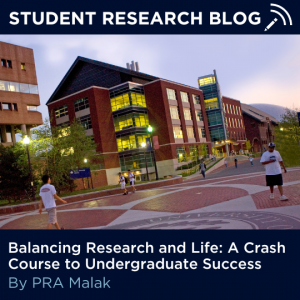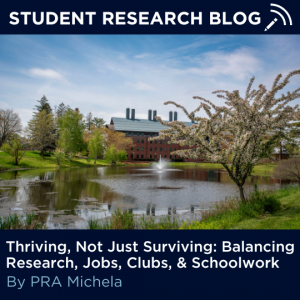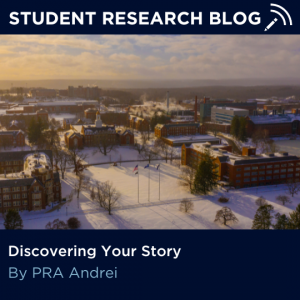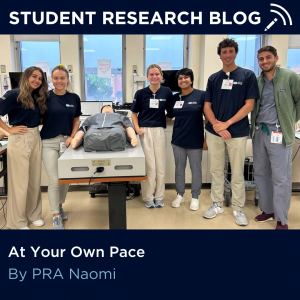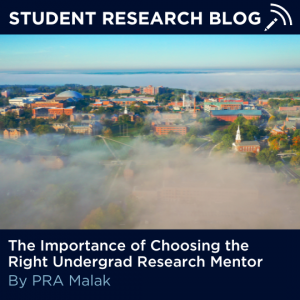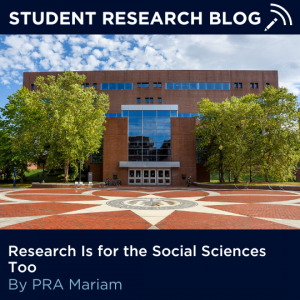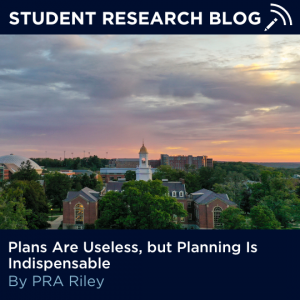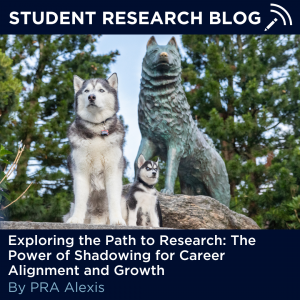By Anabelle Bergstrom, Peer Research Ambassador
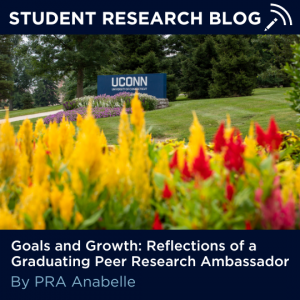 As I write this blog article, I cannot believe I am coming to the end of my undergraduate career. I also cannot believe that I will be wrapping up my time as a Peer Research Ambassador, a position I have held since the summer between my freshman and sophomore years. This position in the Office of Undergraduate Research has been incredibly rewarding and fulfilling. My favorite part has been meeting students who are as interested in research as I am and helping them find their research passion. Over the past (almost) four years, I have learned so much that you may find useful as you continue to pursue your own undergraduate research goals. Continue reading
As I write this blog article, I cannot believe I am coming to the end of my undergraduate career. I also cannot believe that I will be wrapping up my time as a Peer Research Ambassador, a position I have held since the summer between my freshman and sophomore years. This position in the Office of Undergraduate Research has been incredibly rewarding and fulfilling. My favorite part has been meeting students who are as interested in research as I am and helping them find their research passion. Over the past (almost) four years, I have learned so much that you may find useful as you continue to pursue your own undergraduate research goals. Continue reading
